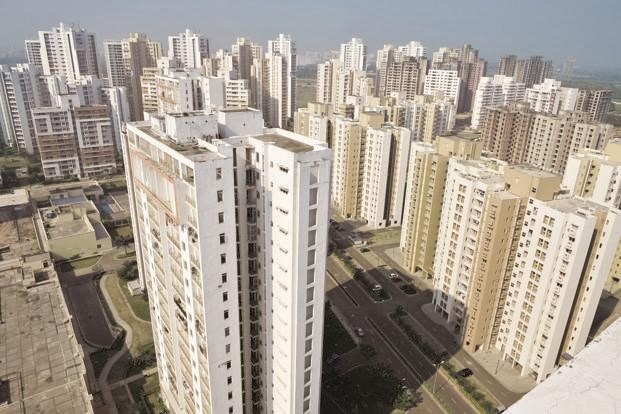2019 represents a year of new advancement and hurdles alike for the Indian real estate sector as most experts will have us believe! Market dynamics are fast evolving and the players who succeed in a more competitive, customer-centric space, will be the ones who are able to ride on the back of the winds of change that have been blowing in the sector for quite some time now. There will be several factors influencing overall performance of the real estate market in 2019.
These include the upcoming elections, the recently announced interim budget, infrastructural and connectivity enhancements, credit growth and so on. From a historical perspective, prices of property have always remained somewhat more affordable and softer prior to any major election although they have always started rising thereafter. The elections may or may not affect prices of real estate all that much but they may lead to some stagnation in terms of infrastructure building, clearances and approval for new regulations, policies and other administrative work which is necessary for the realty sector to keep its momentum going.
However, almost all experts agree on the fact that a stable Government at the Centre is a must when it comes to boosting overall real estate growth and stability in the long term. There are some anxieties linked to the present issues that major NBFCs are grappling with although there is a positive economic forecast for the country ahead, as noted by several experts. The GDP growth rate is around 7.3% while inflation has been kept at 4.8% only for 2018. These are positive trends and economic growth and progress may keep the momentum rising in the real estate sector as well. On that note, here’s taking a look at some of the key predictions for Indian real estate in 2019.

- Greater Accountability & Customer Centricity– This is a trend that started with the introduction of RERA and also GST to an extent. The entire environment in Indian real estate now is more transparent, particularly in terms of project information, clearances, information sharing between developers and buyers and also in transactions. Developers will be more accountable to buyers in 2019 and fly-by-night operators or other institutions (those not in it for the long haul) have been shifting out of the market. This trend will continue in 2019 with only the organised and serious real estate players surviving after complying with all regulations. There could be more joint ventures between smaller brands and leading developers for projects in 2019.
- Legal Confidence Boosters– The real estate market in 2019 may be positively impacted by the execution of title insurance. This is something that will legally boost confidence of buyers along with another positive measure, namely the digitization of all land records. This will usher in more accountability and transparency and maintenance of these records will be a smoother affair, enabling swifter updating whenever required and lowering the number of legal disputes overall.
- Affordable Housing to Grow– Affordable housing has been the major market driver in recent times and this trend is expected to continue in 2019. Mid-range and affordable housing units will continue finding more traction with buyers across the country in 2019 as forecasted by experts. Most buyers will prefer units that are ready to move into while affordable housing projects will spur more demand across metro and Tier-II cities alike according to experts. There are PMAY and GST benefits on offer and this will keep this space ticking. There will be major infrastructure development by the Government in terms of expansion of metro and railway networks, building of new airports and social infrastructure on the peripheral areas of major cities. This will boost the affordable housing sector massively. The number of projects coming up in the outskirts of major cities may actually increase.
- Commercial real estate to keep doing well– The commercial realty space should also see a major boost in 2019. It has been doing well and demand should go up for Grade-A commercial space in key metro cities. Co-working spaces should be highly in vogue and will contribute a major chunk of demand in this segment. The Smart Cities mission and Government initiatives for start-ups will also help in the growth of this sector. The warehousing and logistics space will also see further growth post being granted infrastructure Big-ticket investments are expected to flow into commercial real estate in 2019. As always, Mumbai will remain one of the biggest office markets followed by Delhi-NCR, Bangalore, Chennai, Hyderabad and Pune. REIT listings will be enhancing overall liquidity in this segment and there will be demand from sectors like IT and ITeS, FMCG and other consumer products, manufacturing, logistics and BFSI. Rentals will continue growing in metro and Tier-I and Tier-II cities alike.
- Technological Progress– Real estate has already gone digital and the focus of real estate developers and industry players will be to build online customer bases with a view towards enabling buyers to view, review and find out more about projects. Leading proptech players should benefit immensely in 2019 while developers will look to build their own brands through social media platforms like Facebook, YouTube and Twitter. The emphasis will be on creating and building conversations with customers in order to tailor offerings as per changing needs.
- Millennials to become a key buying audience– In 2019, real estate developers are expected to contend with a new but rapidly growing buying audience, namely millennials. There will be a major shift in the housing market with millennials contributing a major portion of demand. The country has 410m people in this bracket and they are expected to spend at least $330 billion on an annual basis by the year 2020 as per several studies. Millennial buyers will desire aesthetically appealing yet well-connected real estate projects near public transport facilities and other social amenities and will also desire basic amenities for themselves and their families. Their evolving requirements will be shaping project development majorly throughout the course of 2019 and 2020 as per experts.
How will growth in prices pan out?
When it comes to price growth in major Indian cities, experts feel that property prices will increase at roughly 50% of the consumer price inflation rate in 2019 on account of lower supply of credit. Home prices have been going up in double digits for close to 10 years throughout India. However, price growth will be slightly muted on account of the liquidity crunch that is inherent in the market post the default of a short-term payment by IL&FS (Infrastructure Leasing and Financial Services, one of the biggest lending institutions. The Central Government and RBI have been differing on the stringent liquidity norms with the former asking the latter to ease up the lending norms for financial institutions and other lenders. Lenders are also more cautious in the present scenario due to increasing NPAs and other bad loans. They have been mostly refraining from any big-ticket lending which has impacted the realty market which depends immensely on funds for developing property and also for buying the same.
The crunch in liquidity will ease out eventually but it will have an impact in 2019 according to several experts. Home prices will not grow hugely although there will be some returns for investors and end-users alike. Reports estimate that home prices increased by an average of 8.5% in 2018 based on the National Housing Bank’s Residential Index employed by the RBI as a predominant estimation of the same. Home prices are expected to increase by roughly 2.8% in 2019 and 2% in 2020 which is approximately 50% of the forecasted rate of inflation in consumer prices. Home prices are expected to come down by anything between 2-2.5% in Delhi-NCR which should make the market more affordable for first-time buyers and this may initially lead to a spurt in sales volumes.
Many experts feel that prices are overtly high in the Delhi-NCR realty market and hence they will come down a little in 2019, making the market more balanced overall. Prices of real estate in Mumbai are expected to remain mostly flat all throughout 2019 and 2020 as per experts while they could increase anywhere between 1-2% for Chennai and Bangalore. Affordable and mid-range housing will drive most sales transactions since high prices in the premium and luxury categories are a major deterrent and entry barrier in some locations. Hyderabad should witness a pick-up in demand along with Pune while Bangalore, Chennai and Mumbai should do steadily. Kolkata should chug along nicely with demand forecasted to increase in the mid-term. Delhi-NCR should witness recovery of the Gurgaon realty market although Noida-Greater Noida will be the buzzword with several infrastructural improvements.
Impact of the Union Budget on real estate
The Indian real estate sector will be impacted hugely by the recently announced Interim Budget in 2019. The budget declared by the Government has attempted to give a boost to the Indian real estate sector while offering more incentives to prospective homebuyers as well. Here are some of the key measures that will boost real estate markets in 2019 courtesy the Union Budget.
- Exemption on notional rent on unsold inventory– The Government has helped real estate developers by scaling up the exemption on notional rent on unsold inventory to two years from one year previously. Unsold inventory figures are reportedly higher than 6.3 lakh units across India’s top 7 cities and hence developers had to fork out considerable taxes. This increase in exemption will give most builders some relief. The risk levels of unsold inventory are coming down as a result.
- Extension of Section 80-IAB benefits– The Central Government has also brought cheer to real estate developers of affordable housing projects by extending the benefits under Section 80-IAB for another year, i.e. till March, 2020. These benefits allow deduction of 100% of profits earned by real estate developers on their affordable housing projects. This will ease up a lot of the pressure building in the affordable category as per experts and will enhance overall supply.
- Incentivizing investments in second homes– The Government has taken measures to incentivize second homes and these will attract several people with regard to buying more property. Firstly, the Government has announced that no taxes have to be paid on notional rental income for self-occupied second homes. If a property has been rented out, TDS will not be deducted up to Rs. 2.4 lakh now as compared to Rs. 1.8 lakh previously. These are major moves that will encourage more people to invest in real estate, particularly for earning rentals as per experts.
With these moves, the Government has made things easier for middle class real estate buyers, particularly those moving to other cities. There is also capital gains exemption for up to two homes which will help people build up realty portfolios for investing. This could have a major impact with regard to spurring more demand across Tier-II and Tier-III cities. Capital gains up to Rs. 2 crore can be invested in more than a single property post the sale of another property. This will encourage more people to buy real estate or upgrade their homes.
The Government has not yet confirmed any lowering of the GST for the real estate sector although lower rates may be in the works for the near future as per reports. Additionally, the housing sector will benefit from the new move to offer zero tax liability for those earning up to Rs. 5 lakh. This will put more money in the hands of prospective homebuyers who will be drawn to the PMAY benefits on affordable housing units. Those earning up to Rs. 6.5 lakh will also have zero tax liabilities in case they invest wisely.
All in all, 2019 should be a mixed bag for the Indian real estate market. However, the Union Budget has been a game changer and will certainly spur more growth throughout the country. Tier-II and III cities should be major contributors to the real estate market this year. There will be more second home investments while affordable housing will continue to drive the sector forward according to experts.





































